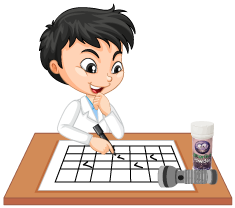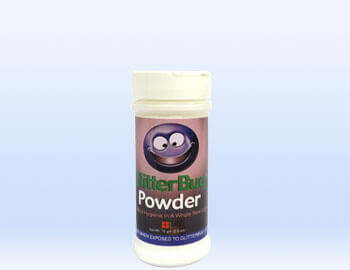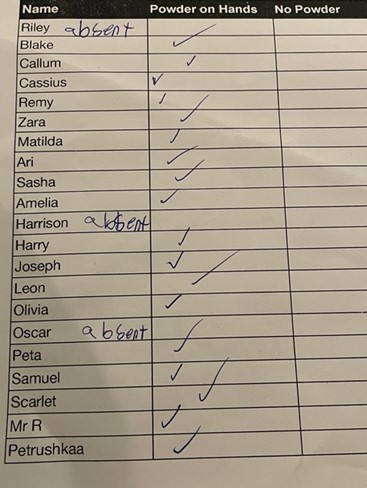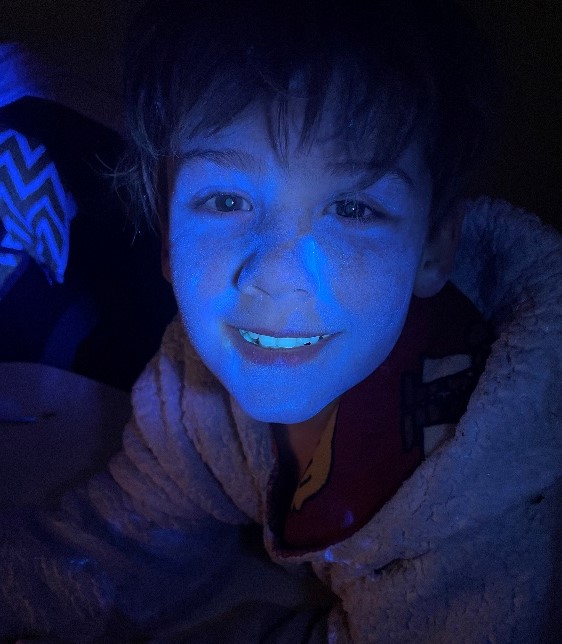
The following science report was sent to us by Brodie Anderson, a student at St Thomas School in Goodwood. We loved the thoroughness of Brodie’s experiment and it gave us great hope for the future of Australian science. Brodie received the Oliphant Science Award for this work.
We have reproduced the report verbatim below.
The learning intention of this scientific enquiry is to find out, how fast germs such as covid can spread in a year 5 classroom, when one person is originally infected.
Over the last year, there has been lots of discussion about germs, infection and hygiene due to COVID-19. This made me think about how quickly germs can spread in the classroom, in particular my classroom of year 5 students.
In my research I found a product which allows us to see how germs spread and to see the contamination of an invisible powder which can only be seen using a UV light.
If one year 5 student enters the classroom with a contamination on their hands, how many other student will have traces of it on their hands by the time they go out to lunch?
I predict that out of the 21 students and 1 teacher in the classroom that 50% of the kids in the classroom will have traces on their hands. I also predict that contamination will be higher with the girls in the classroom over the boys, as they are always closer to each other and sharing things.
| Date | Notes | Actions to Do |
|---|---|---|
| 13/4/22 | Spoke to teacher about idea and asked if it would be ok to do in the classroom | Research a product that is safe |
| 27/4/22 | Found Glitter Bug Powder Website and product which is safe to use in school | Send to teacher |
| 09/05/22 | Complete risk assessment | Get teacher to sign off |
| 06/06/22 | Order the Glitter Powder and the UV light | None |
| 08/06/22 | Give teacher copy of permission form to hand out to student parents | Get signed |
| 23/06/22 | Set a Date to do experiment | Principle signed off on experiment |
| 24/06/22 | Do the experiment | Photos sent to email. |
| 26/06/22 | Analyse Data | Enter into report |
| 26/06/22 | Finish report | Send to teacher |
Knowing I wanted to explore how quick germs spread I first researched a product that was safe and non harmful to use for children on their hands.
I found this product called “GlitterBug Powder” as shown in Image 1.
I downloaded the MIMS of the powder and made sure that it was a safe product to use in the classroom.
Although the product was safe, a copy of the MIMs was also given to the teacher in case of any reaction for a student in the classroom, which was written in the risk assessment.
The GlitterBug powder will only show on hands when under a UV light. Which allows for the students in the classroom not to know that they are passing on the contamination to anyone else. As shown in Image 2.


The Steps for conducting the experiment include:
END OF experiment
| Risk | Initial Level | Actions To Reduce | New level |
|---|---|---|---|
| Reaction to the Powder | Medium | Pick a product which has been tested a lot Pick a product which has been approved safe to use in schools Get MIMS report for the product and provide to teacher in case there is a reaction | Low |
| Students proposing infect each other | High | Students are not told what day the test would happen Only one student and teacher know on the day that it is happening, that student is me. Only one student/me will have the powder on their hands to start with. Only check once at lunch time for the contamination. | Low |
The experiment was done on Friday the 24th of June, on the day out of the 21 kids there was 3 kids absent leaving 18 kids involved in the experiment and 1 teacher. On the day there was 9 girls and 9 boys in the class.
I applied the powder to my hands prior to entering the classroom, and a second time at the end of recess before coming back into the classroom.
As shown in imagine 4 below of data collection, all 18 children and the teacher had it on their hands. It was also evident on many surfaces within the classroom.
Image 5 and 6 shows the checking of the hands, Image 7 and 8 shows how it also spread to surfaces within the classroom.






The data showed that my hypothesis was wrong, and that boys and girls were equally affected by the contagiousness of the powder. Also, I only predicted that 50% of the classroom would have it on them but the results were 100%.
It would be interesting next time to have collected the data in the other year 5 classroom to see if they too are just as contagious as our classroom, or to do the experiment on a couple of different days as this day could have had more group work than other days, being a Friday, which would have helped the powder to spread.
Another great question would be ‘Are year 5’s more contagious than Receptions”, and done the experiment in their classroom too.
From the data created, I would say that a year 5 classroom is very contagious, and that we are really good at sharing things.
My mother helped me plan and edit my writing, and MR R helped me send out permission forms, and take photos on the day, while I checked everyone’s hand.
